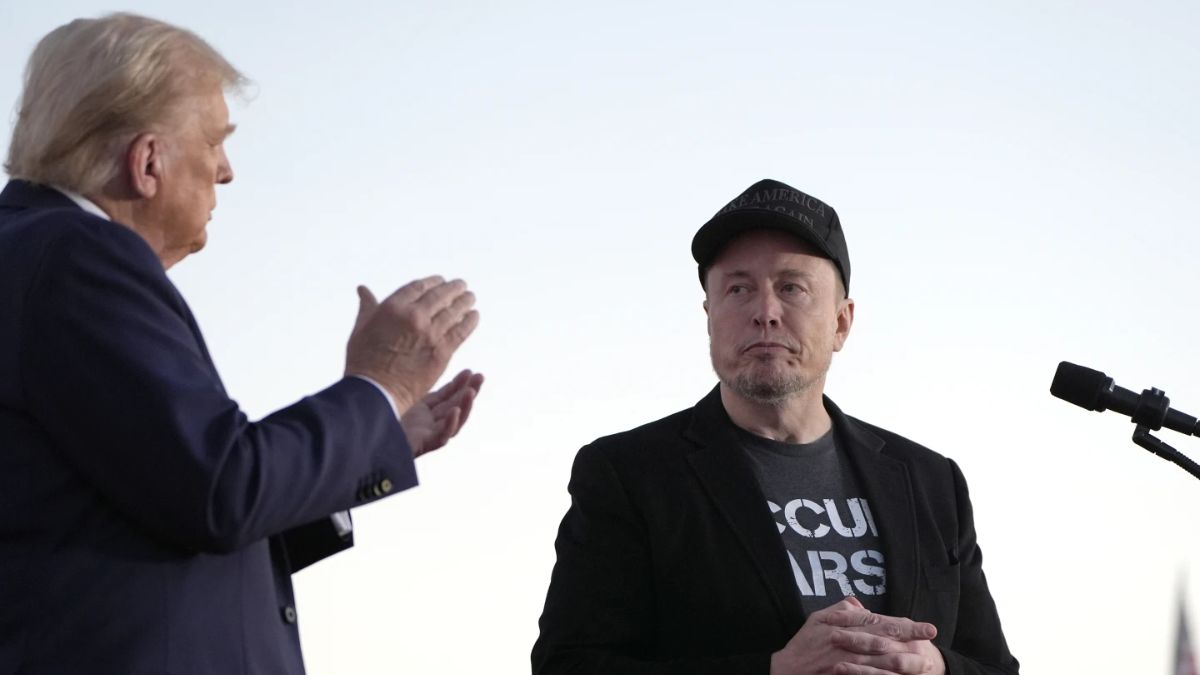US President Donald Trump is making all sorts of headlines. On Sunday (February 2), Trump vowed to halt all funds to South Africa over the country’s alleged human rights violation.
He claimed that “terrible things are happening in South Africa,” accusing the leadership of “doing some terrible, horrible things” without offering any specifics. He said, “They’re taking away land, they’re confiscating land, and actually they’re doing things that are perhaps far worse than that.”
Trump , it appeared, was referring to a new law in South Africa - the Expropriation Act, which gives government powers in some instances to seize land from the people. This law garnered social media attention after Elon Musk, a close Trump ally and head of the government’s new Department of Government Efficiency (Doge), posted about it, casting it as a threat to South Africa’s white minority.
It comes as a shock to many South Africans who view it as a move influenced by Musk, who was born in the South African capital of Pretoria but left for Canada after he completed high school.
Meanwhile, the South African government has rejected Trump’s criticism of the new law. It stated that the new law was aimed at addressing the disparities created by decades of apartheid and white minority rule in South Africa that ended in 1994.
What is the law?
In January, South African President Cyril Ramaphosa signed the Expropriation Act into law which allows the government to reclaim land in specific instances where it is not being used, or where it would be in the public interest if it is redistributed.
It aims to address some of the wrongs of South Africa’s racist apartheid era when Black people had land taken away from them and were forced to live in areas designated for non-whites.
Ramaphosa responded to Trump’s comments Monday by saying the US president was wrong and no land had been confiscated and said he looked forward to “engaging” with the Trump administration over the issue. The South African government said that the US didn’t understand the law.
What were Musk’s previous statements about South Africa?
In 2023, Musk accused Ramaphosa’s government of permitting a ‘genocide’ in response to the ongoing killings of some white farmers over the years.
While the killings have been condemned, experts have said there is no evidence of any genocide and they are part of South Africa’s extremely high violent crime rates and mostly related to farm robberies. Crime affects all South Africans, and the country has an average of 70 homicides a day, with the vast majority of the victims Black.
Musk also waded into the issue Monday by replying to a post by Ramaphosa’s official account on X with the question - “Why do you have openly racist ownership laws?”
Again, it remains unclear exactly what Musk was referring to, but his comments seemed to allude to South Africa’s affirmative action laws in business that are designed to advance opportunities for Blacks and other racial groups who were disadvantaged under apartheid. Musk’s Starlink satellite internet service has been denied a licence in South Africa because it doesn’t meet affirmative action criteria.
What is the situation in South Africa?
The situation is not much different from 30 years ago when the apartheid system was abolished in the country. Generally, White people continue to have a much higher standard of living than Black people in South Africa.
That’s reflected in poverty statistics, with a 2021 study by the South African Human Rights Commission finding that 64 per cent of Black people were living in poverty against one per cent of White people. When it comes to land, white people make up about seven per cent of the population of 62 million and own around 70 per cent of the land, according to the most recent land audit, although that share has decreased since apartheid.
Still, the new land law has drawn criticism even from inside the country, with civic groups that represent the interests of Whites and some South African political parties saying they will challenge it in court because it allows land to be taken without compensation in some cases.
While South Africa has deep socio-economic problems and a damaging legacy from nearly a half-century of apartheid, it is regarded as a stable democracy and is not a country brimming with racial tensions as it is sometimes portrayed to be.
What could Trump do?
Trump said on his Truth Social platform that South Africa was “treating certain classes of people very badly,” again without elaborating, and he would stop all future funding while the US investigated.
That threatens around $400 million a year in aid the US gives to South Africa, most of it for the country’s HIV/Aids programme through the President’s Emergency Plan for AIDS Relief, known as PEPFAR. South Africa’s US funding through PEPFAR was already threatened by Trump’s global aid freeze.
South Africa is also concerned that Trump might remove it from the African Growth and Opportunity Act (AGOA). This which gives South Africa and other African nations tariff-free access to the US market. Trump has already imposed tariffs on goods from China, Canada and Mexico — although on Monday he said he is pausing his tariffs planned for Mexico and Canada by one month.
With inputs from AP
)